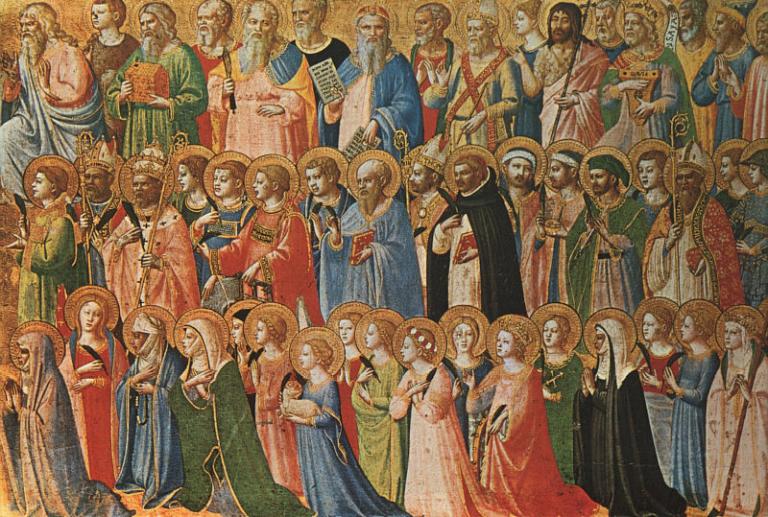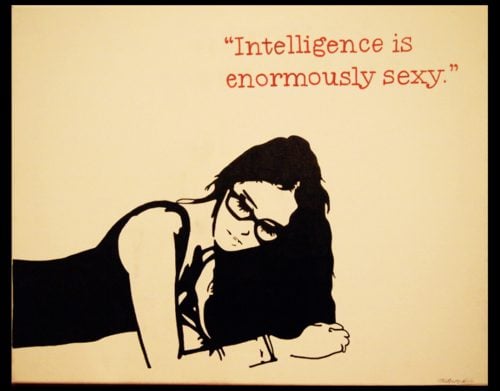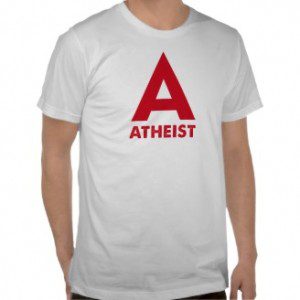 The problem with classifying people into understandable concepts — whether “gay,” “conservative,” or any of the rest — is that people are ferociously not concepts.
The problem with classifying people into understandable concepts — whether “gay,” “conservative,” or any of the rest — is that people are ferociously not concepts.
Labels “know” the person by reducing him to a series of understandable traits, grinding away his distinctions and forcing him to stand in an abstracted community of liberals, gays, reactionaries, or atheists, no matter how unique he may be to the liberal or atheist he brushes abstract-shoulders with.
Labels provide unity amongst people only in the mind of the labeler. By applying to the real person that which only exists in the mind, we degrade him. Sometimes this is obvious — as when we discount a man’s emotion, reasoning, and personal justification for existence on the basis of him being an “atheist” — and sometimes this is subtle — as when we hold with all our teeth and nails to the label “conservative” in a desperate attempt to distinguish ourselves from “those others,” finding in that abstraction an easy identity which enables us to avoid dealing with our particular selves, facing death on this particular planet.
The individual resists labels because labels are tools for grouping, and the individual is not the group. This inherent antagonism between the two means that the attempt to establish community and hold hands over a label ends in one of four ways:
1. You outgrow the label. The label you so eagerly accepted in high-school becomes a choking restriction by college, and the labels fondled in college become embarrassing by adulthood, and the labels gripped like life-preservers in adulthood become meaningless on your deathbed, the all-encompassing label of “secular humanist” fairly irrelevant when there’s a knife in your throat.
2. The label outgrows you. The Republican party is in the grand old process of selling its soul for a socially liberal agenda, outgrowing many of those who claim the modifier “Republican” as their own. We wake, find that the 8th graders on r/atheism are posting hardcore Satanist memes, and realize it’s time to make some distinctions regarding that well-worn label, “Atheist”. So it goes.
3. Your label is forcefully changed. This happens when a label gets a bad name, and so an agreement is made to change the label, as “pro-abortion” was sweetened into “pro-choice”, and “pro-choice” is now floundering through the process of becoming God knows what. (It occurs to me that our ability to change a label without changing our behavior should be evidence enough of the inherent wackness of applying these watery, shifting labels to the human person.)
4. You are successfully subsumed into a label for the entirety of your existence. At this point, you have all the credentials necessary for hosting a political talk-show. Your label has entirely ceased to be a description. It is a culture. You live it. You own the t-shirt. You attend the rallies. Your only lack is a soul, which is a small price to pay for total security in being.
If a label is going to unify people, it cannot do so by ceasing to describe them personally, as “liberal” and “conservative” have long since ceased to describe people, and have taken to listing a number of ever-shifting “issues,” agreement with which constitutes a human being more or less “liberal” or “conservative.” A label that actually establishes community must describe each and every person living under its title, not grinding away their distinctions, but maintaining them.
A label that isn’t an offense to human dignity cannot exist as a thought-construct applied to people we know nothing about, as the label “primitive” allows me to refer to millions of unique human beings in a single sweep. It must exist in the fact, in reality, not as a mental tool useful for grouping, but as something existing outside of the mind.
Such a label could not arise from a mental reduction of individuals into “gays,” nor from a group of individuals willfully reducing themselves into a thought-conglomerate for the sake of convenience, belonging and membership on internet forums. No, if any word will pull multitudes under a single mantle, it must be an expression of true community, in which every man who takes up the label is actually and substantially united to every man who does the same.
And so we press our noses up against the stained glass of the Catholic Church, that absurd, tenacious relic we can’t seem to shake from the modern world.
The word “Catholic” is not just an exception to the antagonism between the label and the individual, it is communion which all labels fail to achieve, the rock dropped in the pond to which all labels are but ripples, running from and pointing to. In the Church we find the “abstraction blooded,” the “celestial possible,” a mental-construct threaded with veins and thickened with fat.
The man who precedes his existence with the modifier “Catholic” certainly takes on a label. He may be subsumed into the “Catholic vote,” have “Catholic guilt,” and otherwise be manipulated as a labeled product, advertised to by McDonald’s for Fish-o-fillets during Lent. But the Church does not only exist in the mind as the grouped sum of baptized Catholics. The Church is the Body of Christ, and Christ is a living, tangible fact. That which exists as a concept in the mind also exists in the singular, particular person of Christ.
I don’t find this idea easily explainable, though I’m bursting with the desire to unite you to it. Consider Holy Communion. Holy Communion is a symbol of community, a shared supper, the Supper of the Lamb, the breaking of the bread and the passing of the cup. But if that’s all Holy Communion is, then there is no real distinction between Holy Communion and Hell, for community has been reduced to the idea of community. That we have received “holy communion” has a similar meaning to having received the label “gay” or “conservative.” We are united under a sign of community, a sign which doesn’t necessarily refer to the fact of community. I may hate my brother and yet be united to him under the sign of a mystical supper. We both ate the bread and drank the wine, voila, communion, in the same way two people who oppose abortion are enjoined in communion by the sign “pro-life,” regardless of whether one disrespects life in a myriad of other ways. The label unites in the idea, but there remains deep, deep division in the fact.
But the Catholic Church does not consider Holy Communion a symbol, but a sacrament, and a sacrament makes present that which it signifies. So I engage in the sign of communion, and by this sign I am actually in communion with the entire Church. It is not a reminder, it is not an expression — it is real.
The Church teaches what St. Paul teaches:
“Is not the cup of thanksgiving for which we give thanks a participation in the blood of Christ? And is not the bread that we break a participation in the body of Christ? Because there is one loaf, we, who are many, are one body, for we all share the one loaf.” (1 Corinthians 10:16-17)
If the eucharistic loaf is a symbol, our unity is symbolic. But because the bread and wine really, truly, and substantially become the body and blood of Christ — his words, not mine (John 6) — our unity is real, true, and substantial. Our label has flesh. I eat Christ and am consumed, my neighbor eats Christ and is consumed, and thus our unity is given breath and weight, for Christ is one, and by mutual communion with the One, my neighbor and I are in real communion with each other, as by mutual communion with a mother, my brothers and I live in true, substantial, fraternity.
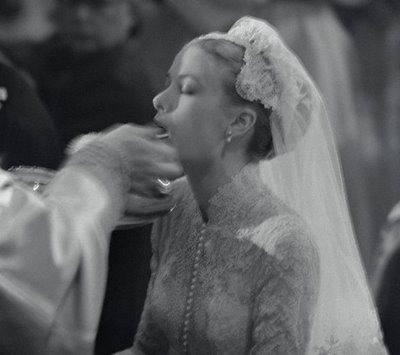
As with Holy Communion, so with the word “Catholic.” It is a sign, yes, and a modifier, yes, and as such appears as just another label — but it is more! For the word refers to communion with the Church, and “the Church is in Christ like a sacrament or as a sign and instrument both of a very closely knit union with God and of the unity of the whole human race,” (Lumen Gentium I) a sign and an instrument of communion. The Church effects what it signifies, and thus the community contained in the word “Catholic” is radically different from the community contained in all other the labels, for labels signify but do not actualize that which they signify.
The word “Catholic” does not level distinctions as labels level distinctions. In speaking of liberals, environmentalists, metrosexuals, capitalists, conservatives, and all the rest, we easily develop a type. This is because labels refer to an abstract idea — which crushes all distinctions — and not an individual — who is beautifully distinct.
It is difficult to typify the Catholic, to find a stereotypical character which unites Flannery O’Connor and Jack Kerouac, Mark Wahlberg and Cardinal Arinze, Pope Benedict XVI and Pope Francis, Mother Theresa and St. Nicholas, Salvador Dali and Nightcrawler. If we can find a “type,” it is usually because we are consciously or unconsciously adding labels to the word “Catholic.” Thus our whisper of “Dark Age” before “Catholic” allows us to fool ourselves into typifying Catholics as members of the Spanish Inquisition, “liberal” allows us to establish a false community between Dorothy Day and Thomas Merton-esque types to the ignorance of all others, and “traditional” allows to wallow in illustrations from the Baltimore Catechism, imagining a true Catholic looks like a 1950’s Westerner eating good portion sizes:
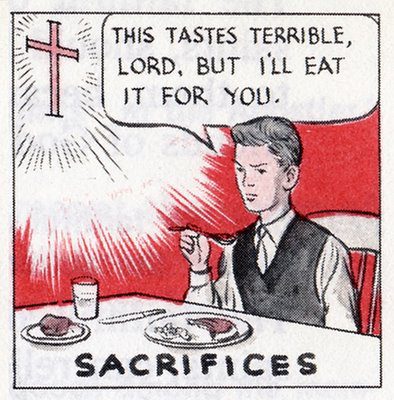
The difficulty of pigeonholing the Catholic comes from the fact that being “Catholic” does not refer to mere conformity to an abstract idea. The Church preserves the individual. By baptism, he is not subsumed into a type. He is baptized, and his baptism and life in Christ are synonymous with his unique, unrepeatable existence.
The Saints are radically different from each other because to be a Saint is to be precisely the self that you are, that self and none ![]() other. Padre Pio and and Blessed John Paul II are not revered because they hold Typical Catholic Qualities in common. Their mutual holiness is not the result of a similarity in spirituality, nor of an interior life that conforms to some Platonic form of “a good interior life.” Their mutual holiness blossoms from the fact that they both strived to be the unique, unrepeatable selves that they are. They are honored for becoming who God made them to be, not for growing in similarity to each other and to a general idea of Sainthood. They are united by their life in Christ, and their lives in Christ are wonderfully distinct. The Catholic lives and kneels in the communion of Saints, not the communion of conservative Catholics, for his unity is with and amidst persons, splendrous in all their unrepeatability. “If therefore in the Church everyone does not proceed by the same path, nevertheless all are called to sanctity and have received an equal privilege of faith through the justice of God” (Lumen Gentium IV, 32).
other. Padre Pio and and Blessed John Paul II are not revered because they hold Typical Catholic Qualities in common. Their mutual holiness is not the result of a similarity in spirituality, nor of an interior life that conforms to some Platonic form of “a good interior life.” Their mutual holiness blossoms from the fact that they both strived to be the unique, unrepeatable selves that they are. They are honored for becoming who God made them to be, not for growing in similarity to each other and to a general idea of Sainthood. They are united by their life in Christ, and their lives in Christ are wonderfully distinct. The Catholic lives and kneels in the communion of Saints, not the communion of conservative Catholics, for his unity is with and amidst persons, splendrous in all their unrepeatability. “If therefore in the Church everyone does not proceed by the same path, nevertheless all are called to sanctity and have received an equal privilege of faith through the justice of God” (Lumen Gentium IV, 32).
The word Catholic does not cease to describe the individual. In saying “Catholic” you refer to the Greek katholikos — from the phrase kath’ holou, which means “on the whole,” or “about the whole” — usually translated as meaning “universal.” In predicating myself with the word Catholic, I refer to my whole self. To speak about Catholic-Jane is to speak “about the whole” Jane. To be a Catholic is to be “universal,” the universal me, that is, the only me in the Cosmos. This the incredible potency of the word. When predicating the Church it refers to the unification of all people, the true, substantial community of believers, and ultimately the unity of the entire world. When predicating the person it simultaneously places him in that community and elevates him to his true status: The only him in existence.
The word “Catholic” is less of a label and more of a sacred tautology, calling all people one in themselves and one in Christ, containing in its simplicity both the individual and the community, doing damage to neither, divinizing each. I believe it wise to ditch all other labels that have no substance outside of the mind, establish no unity amongst persons, and create false communities by falsifying the individual. Far better to be ourselves, that is, Catholic.

